Are you ready to kick-start your career in psychology? Crafting a compelling internship application letter can set you on the path to valuable experiences and connections in this fascinating field. In this article, we'll explore essential tips and tricks to ensure your application stands out and showcases your passion for psychology and eagerness to learn. So, let's dive in and discover how to create an impactful letter that gets you noticed!

Personal Information: Name, contact details
The internship application for psychology majors often requires candidates to highlight relevant personal information that includes essential identifiers. Candidates typically present full names, such as "Johnathan Smith," alongside complete contact details, including phone numbers (e.g., +1-234-567-8901) and email addresses (e.g., john.smith@email.com). Additionally, including postal addresses (e.g., 123 Psychology Lane, Springfield, IL, 62704) can provide further context, establishing a local connection to the internship location. Ensuring this information is accurate and professional is critical, as it serves as the first impression to potential internship supervisors in the fields of clinical psychology, counseling, or educational psychology.
Educational Background: Degree, institution, relevant coursework
Pursuing a Bachelor's degree in Psychology at Stanford University equips students with critical analytical skills and a comprehensive understanding of human behavior. Coursework such as Cognitive Psychology, Behavioral Neuroscience, and Developmental Psychology provides insight into the psychological processes that govern thought and emotion. Experiential learning opportunities, including participation in research projects examining mental health and cognition, complement theoretical knowledge. This educational foundation builds a strong base for aspiring mental health professionals and researchers, preparing them for practical applications in various psychology fields.
Skills and Qualifications: Communication, research, analytical skills
A psychology major, skilled in communication, research, and analytical abilities, can significantly contribute to various internships. Strong communication skills enable effective interactions with clients and coworkers, essential in settings such as mental health facilities or research centers. Research skills allow for the collection, evaluation, and synthesis of psychological data, crucial for conducting studies or analyzing case reports. Analytical skills help in interpreting complex information, identifying trends, and deriving insightful conclusions from psychological assessments or survey results. Each of these competencies is applicable in diverse environments, enhancing professional development and supporting organizational objectives.
Motivation and Interest: Passion for psychology, relevance to career goals
A psychology major deeply rooted in the understanding of human behavior demonstrates a passion for the field through extensive research and academic projects. This interest translates into a clear career goal of becoming a clinical psychologist, which requires practical experience in mental health settings. Engaging in an internship at a reputable institution like the Mental Health Center of Denver aligns perfectly with this objective, offering opportunities to observe therapeutic techniques and interact with professionals. This hands-on experience contributes significantly to skill development and a deeper understanding of psychological assessment and treatment strategies, essential for future success in the field.
Call to Action: Request for consideration, gratitude for opportunity
University internship programs provide psychology majors with invaluable real-world experience. As students approach graduation, securing internships significantly enhances their resumes, showcasing practical skills in clinical settings such as hospitals or therapy centers. Opportunities often arise at notable institutions, like the Mayo Clinic, renowned for mental health treatment. Gaining exposure to diverse cases helps students apply theoretical knowledge acquired during coursework, particularly in understanding psychological assessments and treatment methodologies. Additionally, engaging with professionals fosters mentorship and networking, essential for career advancement in the competitive field of psychology, ultimately leading to roles in counseling, research, or clinical practice.
Letter Template For Internship Application Psychology Major Samples
Letter template of internship application for psychology major focusing on clinical experience.
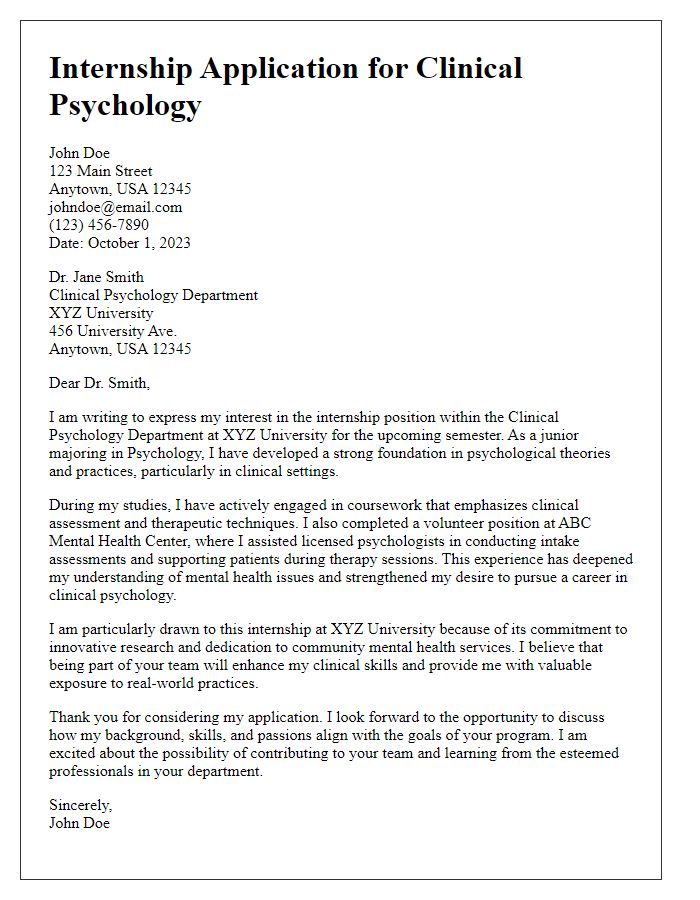
Letter template of internship application for psychology major emphasizing research skills.
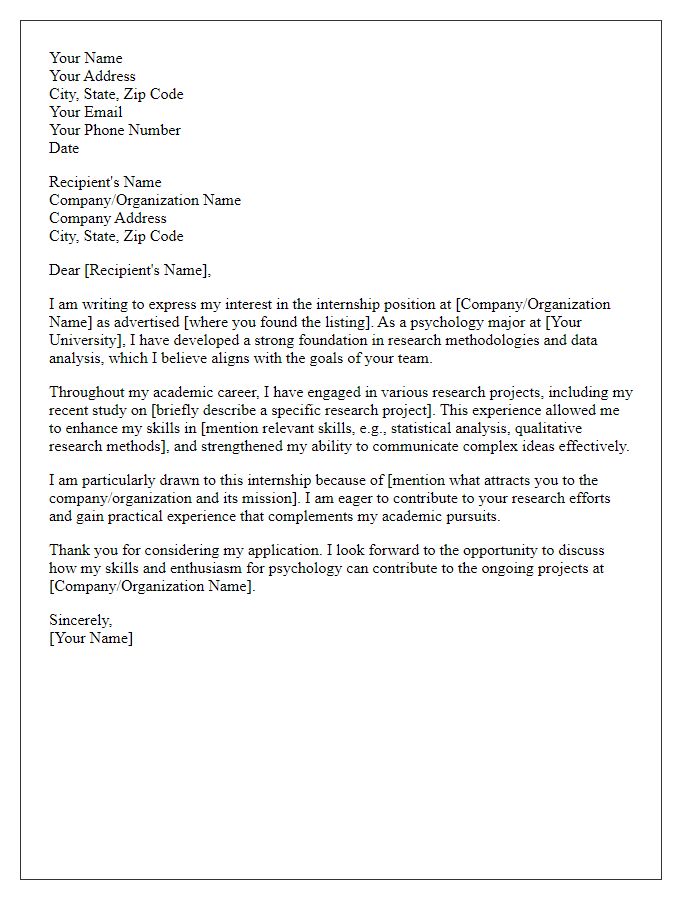
Letter template of internship application for psychology major highlighting community service involvement.
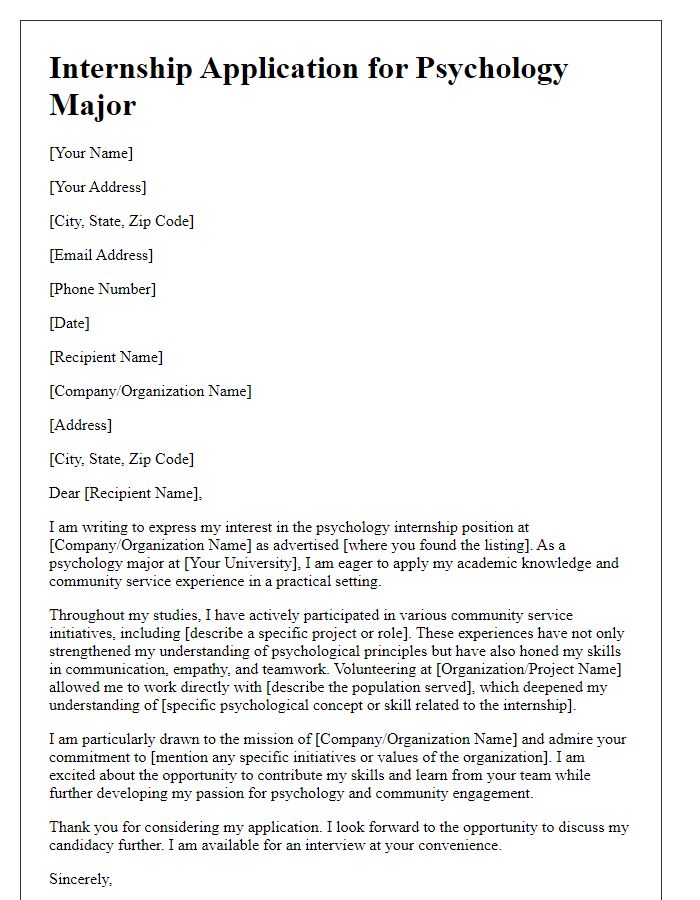
Letter template of internship application for psychology major concerning educational psychology.
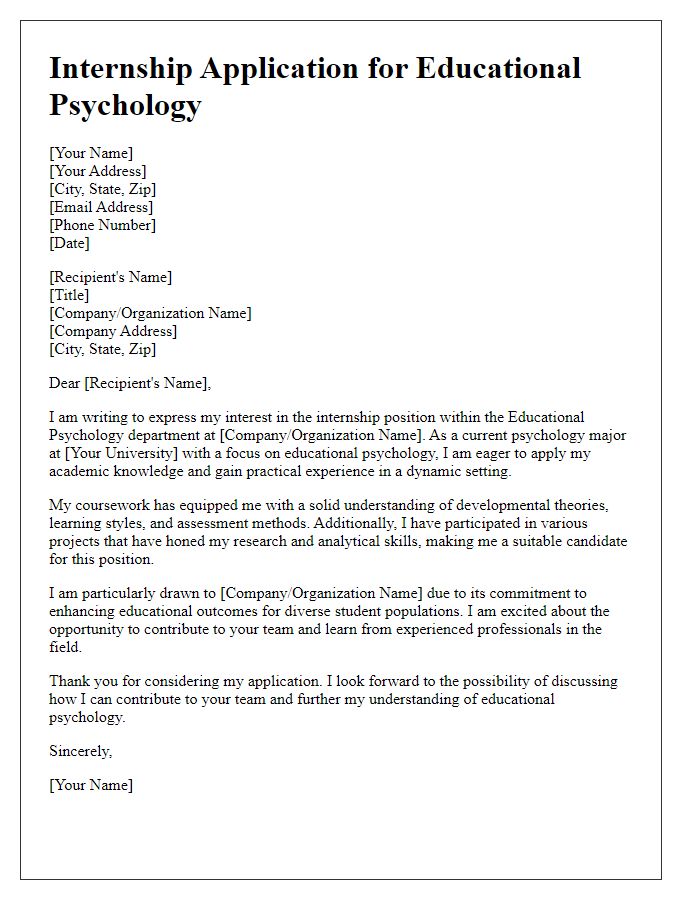
Letter template of internship application for psychology major targeting cognitive behavioral therapy settings.
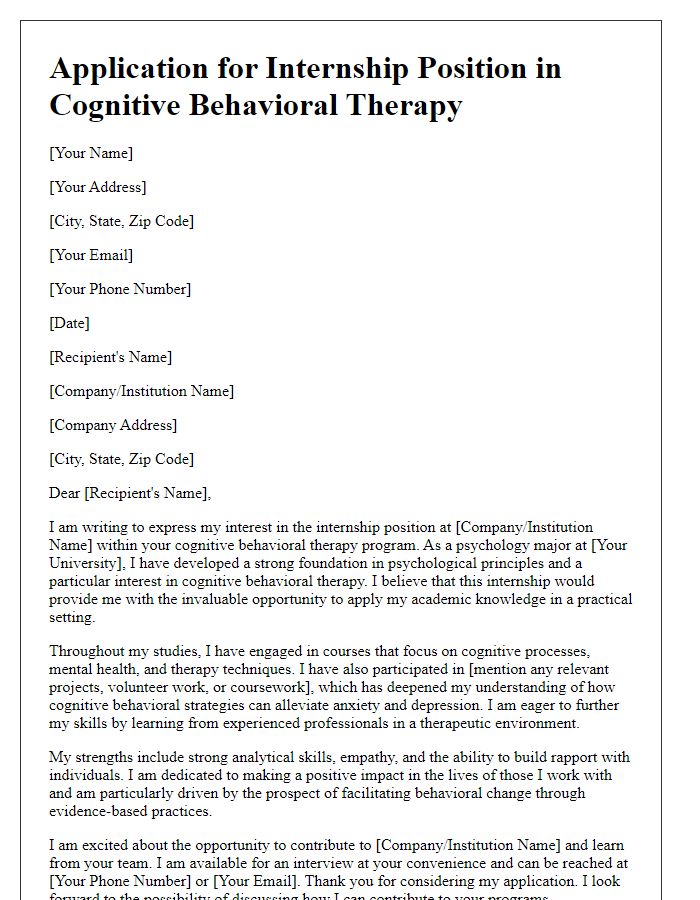
Letter template of internship application for psychology major focused on child psychology.
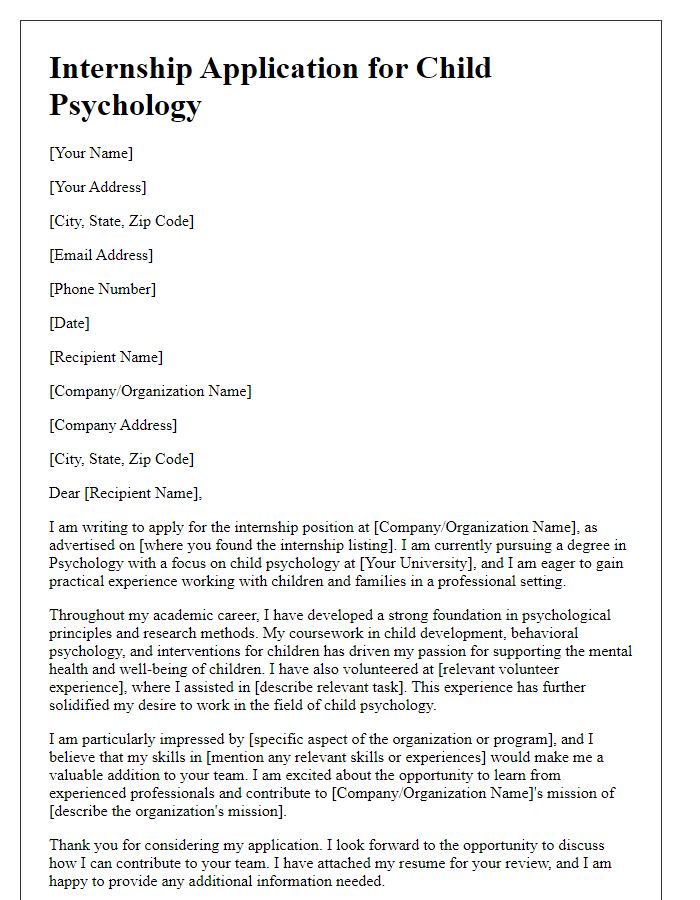
Letter template of internship application for psychology major related to industrial-organizational psychology.
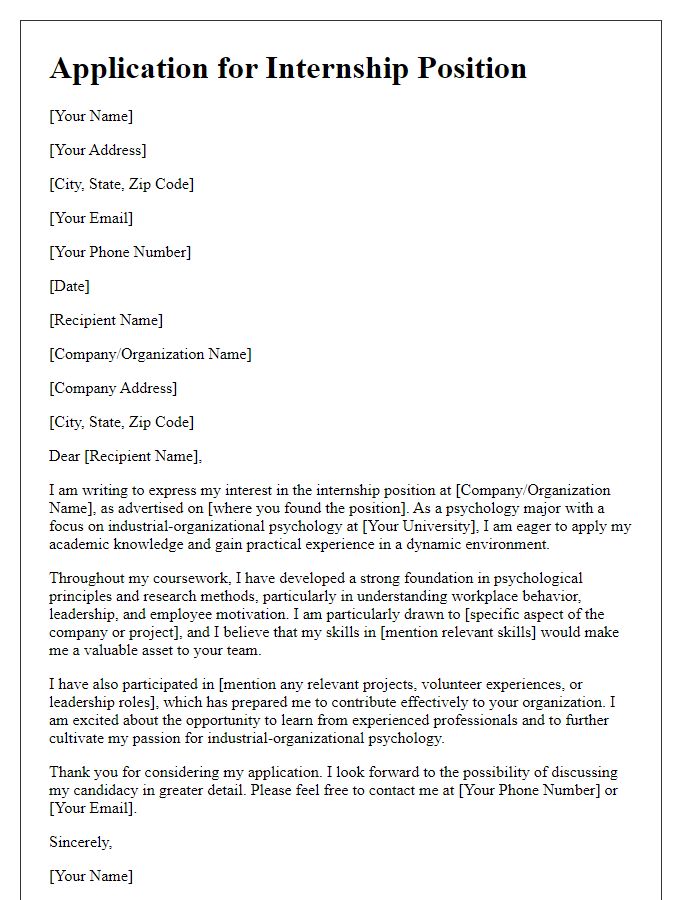
Letter template of internship application for psychology major addressing mental health advocacy.
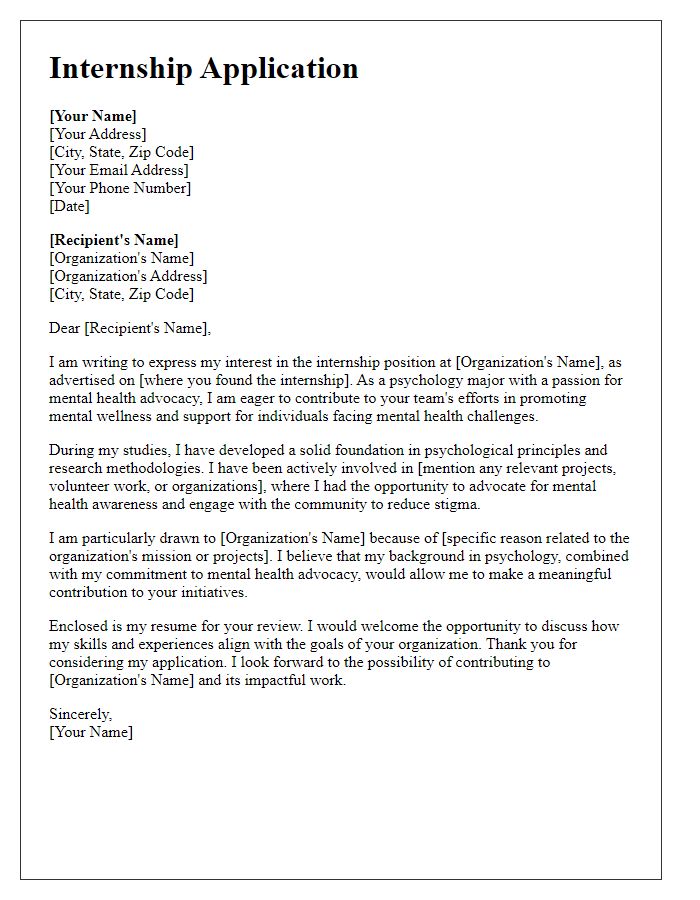
Letter template of internship application for psychology major tailored for school counseling positions.
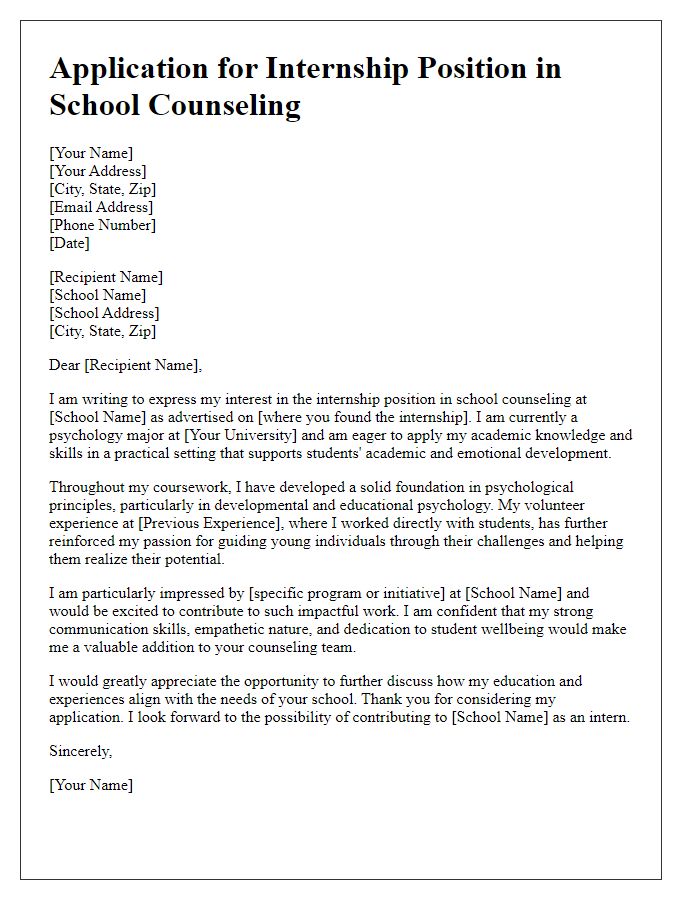

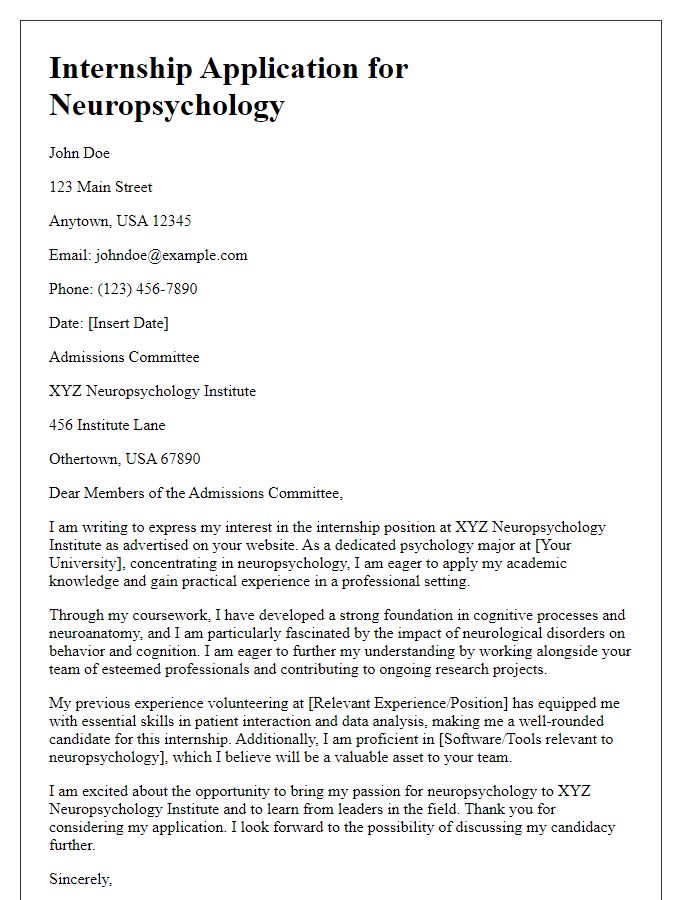


Comments